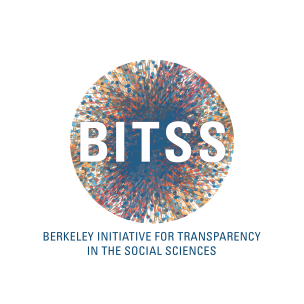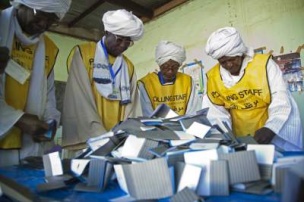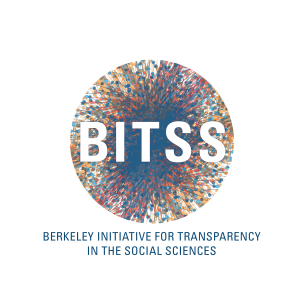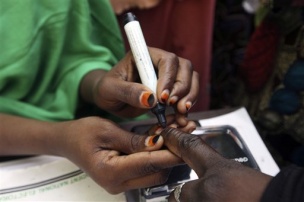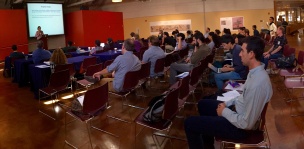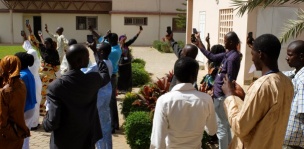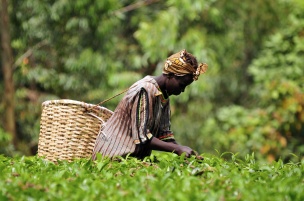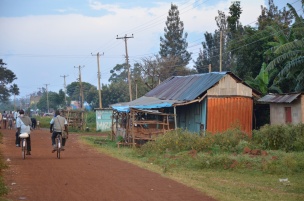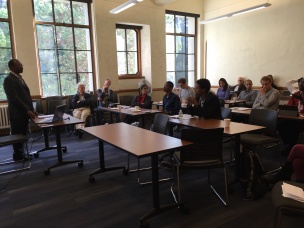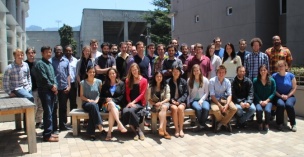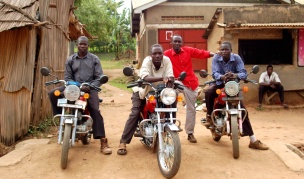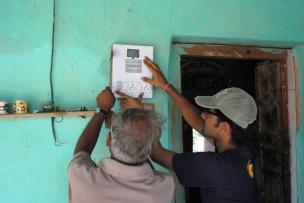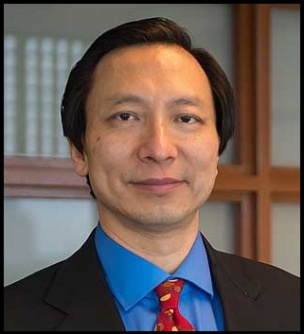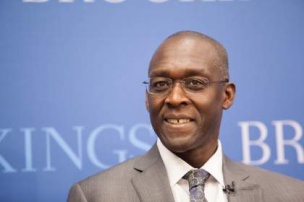Past Events
The 2016 Pacific Conference on Development Economics (PacDev) will be held on Saturday, March 5, 2016 at the Stanford Center for International Development (SCID). The goal of PacDev is to bring together faculty, graduate students, and practitioners to present and discuss various issues facing...
Join us in discussion of Steven Radelet's new book, The Great Surge: The Ascent of the Developing World. The book documents the extraordinary progress in developing countries over the past two decades in income, poverty, health, education, democracy, conflict, and beyond; explains why the...
Working Group in African Political Economy (WGAPE) January 2016
The Working Group in African Political Economy (WGAPE) brings together faculty and advanced graduate students in Economics and Political Science who combine field research experience in Africa with training in political economy methods. It is co-led by Daniel Posner (Department of Political...
BITSS Annual Meeting 2015
The Berkeley Initiative for Transparency in the Social Sciences will hold its 4th Annual Meeting at the University of California, Berkeley on December 10-11, 2015. The goal of the meeting is to bring together leaders from academia, scholarly publishing, and policy to strengthen the standards...
Working Group in African Political Economy (WGAPE) Fall 2015
The Working Group in African Political Economy (WGAPE) brings together faculty and advanced graduate students in Economics and Political Science who combine field research experience in Africa with training in political economy methods. It is co-led by Daniel Posner (Department of Political...
Second Annual Conference on Behavioral Health Economics
Center for Effective Global Action (CEGA) will be hosting its second annual Conference on Behavioral Health Economics, to be held Oct. 16, 2015 in Berkeley. The conference will cover various topics related to the causes and understanding of health behaviors and decision-making. The event is...
The CEGA Research Retreat (R^2) is an annual gathering of invited faculty, staff and students from multiple CEGA campuses with a shared interest in impact evaluation. The purpose of R^2, which features presentations by CEGA-affiliated researchers and their collaborators, is to generate feedback for...
This course addresses the fast-growing area of social and environmental measurement using technologies such as mobile devices, "Internet of Things" (or "Web of Things") style sensors, and remote sensing. We will take a project-based approach, with a classroom discussion each week, followed by a...
The Berkeley-IDB Impact Evaluation Collaborative (BIC) was originally developed with the aim of institutionalizing impact evaluations of IDB-funded projects. The program will wrap up its second year by conducting a follow-up training July 27-31, 2015 on UC Berkeley's campus. In July of 2014, 12...
Learning about impact is critical to wise stewardship of resources as well as to making progress on reducing poverty. However, accurate measurement of impact is not always appropriate or possible. The Goldilocks Project is an initiative from CEGA and Innovations for Poverty Action...
Agriculture in Africa: Translating Evidence from RCTs into Policy to Benefit Smallholders
The past decade has witnessed a dramatic increase in the use of randomized trials in agricultural program evaluations, particularly in East Africa. However, the “last mile” of transforming the results into evidence-based policy remains in order to achieve widespread impact. How can researchers...
4th Annual EASST Summit
The Center for Effective Global Action (CEGA) and the East Africa Social Science Translation (EASST) Collaborative are partnering with the African Population and Health Research Center (APHRC), the World Bank, Innovations for Poverty Action (IPA) and The Abdul Latif Jameel Poverty Action Lab...
Please join us for a discussion of remote sensing and monitoring technologies for crisis response and community resilience. The workshop will discuss measurement of environmental and settlement changes during shocks, leveraging new technologies like micro-satellites, sensor networks, and mobile...
EASST Research Symposium
The 2015 Research Symposium featured an overview of the EASST network and the latest rigorous research undertaken in East Africa by EASST fellows and CEGA affiliates. With presentations ranging across a wide array of topics, the Symposium offered researchers an opportunity to obtain feedback...
Research norms are changing faster than ever before. Repeated cases of scientific dishonesty, mistakes in data analysis, irreproducible findings, and publication bias in the literature, have prompted an impressive number of methodological, statistical, and technological innovations. There is a...
The second Annual Bank Conference on Africa (ABCA) will be held in Berkeley, California, on June 8-9, 2015. It will cover various topics pertinent to the causes, solutions, and understanding of conflict and fragility in sub-Saharan Africa. It is being organized jointly by the Center for Effective...
Working Group in African Political Economy (WGAPE) Spring 2015
The Working Group in African Political Economy (WGAPE) brings together faculty and advanced graduate students in Economics and Political Science who combine field research experience in Africa with training in political economy methods. Since 2002, the group has met semi-annually to discuss the...
Technology plays an essential role in accelerating development in the poorest countries. But technology is not a black-box solution for poverty. Pro-poor technologies must be designed and delivered in the context of weak governance, failed markets, and complex social and behavioral norms. The...
Shang-Jin Wei, the Chief Economist at the Asian Development Bank, will be visiting UC Berkeley as a speaker in the Dean's Speaker Series. More information can be...
On March 31, Makhtar will give a public lecture titled "Policymaking in Africa: Reflections from Decades of Experience". Makhtar Diop has served as the World Bank's Vice President for Africa since May 2012. Under his leadership, the World Bank Group committed a record-breaking $15.3 billion to...

